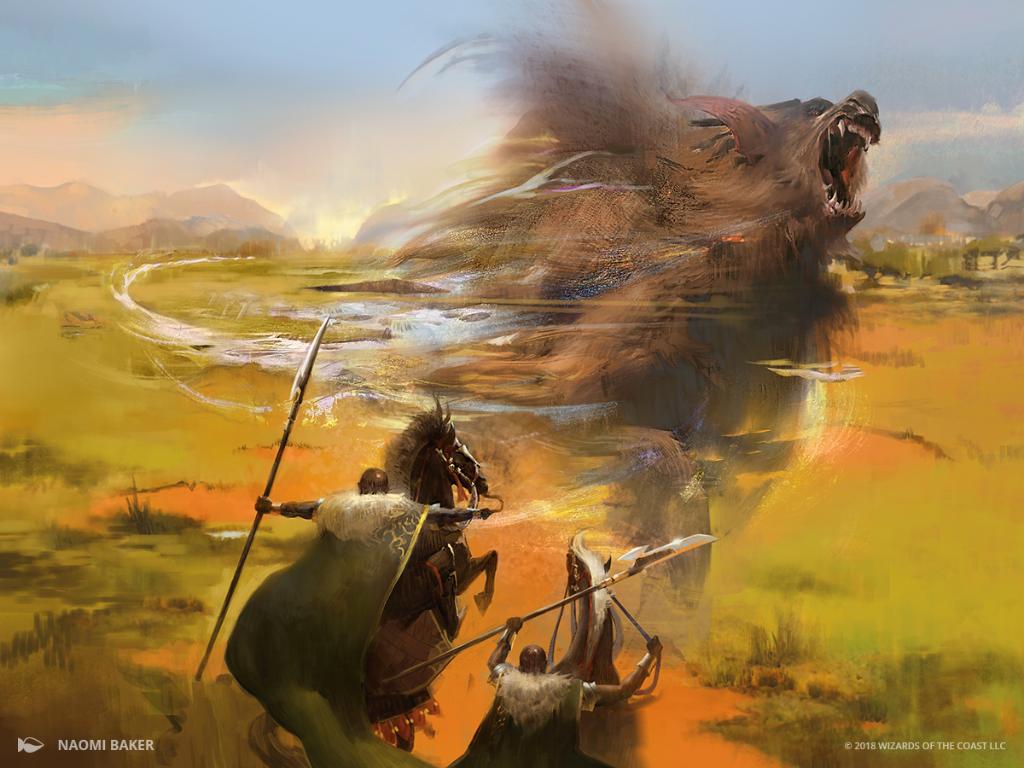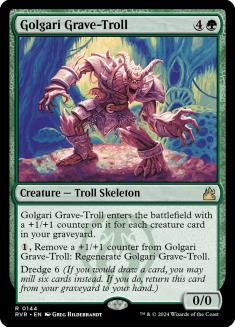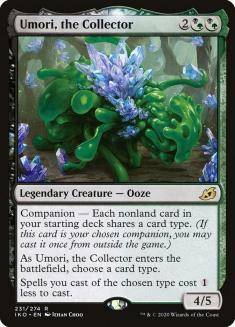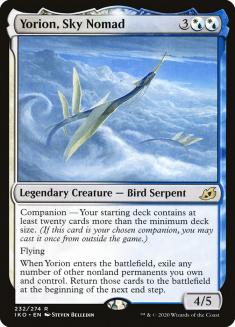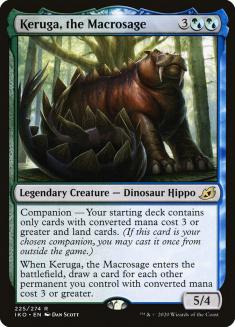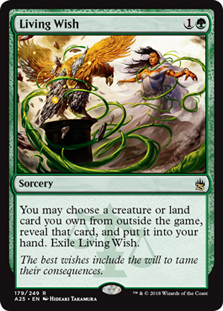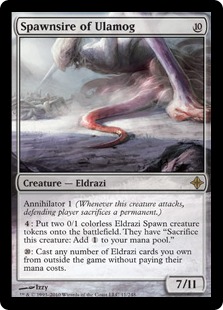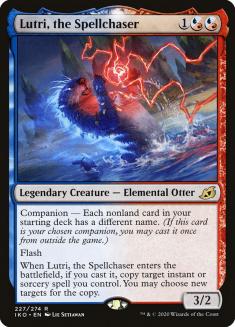When your neighbor’s house is on fire, you don’t negotiate over the price of a hose. You don’t discuss watering philosophies. You douse the flames and figure out the rest later.
Monday, April 20, 2020 will go down as a significant day in Commander history. You can read the full announcement here on the official website; it will provide a good foreground for this discussion. There are three major components to this update:
- Flash
- The companion mechanic
- Lutri, the Spellchaser
I’ll go into additional detail about the decisions we made, some of the discussions that surrounded them, and what we see as the long-range impact on the format.
Banning Flash
Our cEDH friends were getting burned to the ground by Flash, and it was time to do what we could for them (also time to stop straining the house on fire metaphor). This was a gut-wrenchingly difficult decision to make, in part because it’s difficult to justify philosophically. The thing is, you use philosophy to guide your actions. You use philosophy to create freedoms, not constraints. Taking a philosophical hard line here seemed like it was a net negative.
This seems like a good place to stop and make sure we agree on nomenclature. I don’t want to hang any negative associations on anything; we simply need to make sure that we’re all speaking the same language and stave off miscommunications. Even if you’re playing high-powered / optimized Commander while drinking beer in your buddy’s basement, we’re going to call that cEDH. That end of the power spectrum seeks to end the game as quickly and efficiently as possible. Whether or not you’re playing that in a tournament setting, it’s cEDH. Even if you personally define it differently, I hope we can for the purpose of this discussion operate within a similar framework. It’s important to understand that even while some people use cEDH as a pejorative, I’m not in any sense using it that way here.
I’ve been leading talks with members of the cEDH community for most of the last year about this and other issues. They’ve convinced us that this one thing is what they need to make their corner of the format vibrant again. It’s extremely important for everyone to understand that this isn’t opening the door to trying to balance the format for tournament play. It doesn’t signal a philosophical shift. It’s truly an extraordinary and singular action.
In fact, it’s a bit of a line in the sand. There are people who are going to see the move as a capitulation and that further capitulation is possible. A valid question we asked is, “If we do this for you, what’s next?” It’s a lingering concern for both us and Commander’s core demographic. The cEDH leaders have answered that they won’t need anything else (at least not with cards that currently exist). If the language in the announcement wasn’t specific enough, I’d like to be clear. One point is not a vector, and there’s not a second point coming.
The discussion on Flash has been ongoing for some time. One of the anxieties I’ve heard about the possible decision to ban the card is that it’s a signal of recognition to the cEDH community — and that recognition is equivalent with endorsement. To me, it’s silly to not recognize that a thing exists when it clearly does. We can make that recognition while still maintaining faith with the format’s original vision. Commander as a respite from tournament Magic is the direction we’re going to continue heading. We can do that and still maintain a positive and friendly relationship with high-power players, whom I don’t see as separate, but part of the larger Commander community.
Although it many not resonate with some folks, the way we manage the Commander Banned List is unlike how any other format does so. We use it to cultivate an end state of a style of game that we’d like to encourage. Other formats use banned lists to create a state of tournament equilibrium. If you look at the way we manage the list through the lens of the way other formats do, things might not make sense. Commander Advisory Group (CAG) member Adam “Stybs” Styborski captured it well during a philosophical discussion we had in the joint RC/CAG Discord channel:
The banned list in every other format of Magic is the specific result of metagame/decks being unbalanced. As a player, I can ask “Why is Golgari Grave-Troll banned?” or “Why is Lion’s Eye Diamond banned?” and get a discrete answer — there was a deck that caused it.
There is no discrete metagame of Commander decks, and most of the most busted cards in the format aren’t actually banned. It’s a difference of management that isn’t intuitive from the perspective of managing Magic’s other formats.
Tournament formats do a thing: strive to create a balanced environment. We do a different thing: strive to create an epic environment. Right in the philosophy document, we state that we’re doing something else — creating a resonant experience that’s an alternative to tournament Magic. Seen through that lens, the Commander Banned List seeking different ground makes sense. What gives some folks trouble is that the edges for us can be far blurrier. We’re not banning Flash because a particular deck does something; we’re banning it because of the stress is creates within the community. Taking that into consideration, it would be reasonable to approach the Commander Banned List both more conservatively (ban more cards) or liberally (ban fewer/unban some) and still remain philosophically consistent.
I’d like us to consider using the Flash ban to educate, not alienate. We’ve long been fans of the Commander Banned List cards as exemplars for cards which create the kinds of experiences we think the format is better without. The format doesn’t need any reasonable possibility of cheating win conditions onto the battlefield on Turn 0. Flash is the poster child for that kind of experience. If the banning also leads you to consider other cards best avoided, then it’s done its job.
The decision to ban Flash is incredibly complex and nuanced. In this moment, at this time, in this circumstance, it was absolutely the right thing to do.
Companions and “Outside the Game” Cards
This one has been hot-button since we discussed during preview season that we would allow companion to work. There have been calls to ban the entire mechanic because it violates the 100-card deck size rule. There have also been questions asking why we didn’t make the card part of the 100, create a “banned as companion” category, have it start in the command zone, or insist that we now allow sideboards and just put the companion there. A good deal of thought and effort went into the decision, which we knew would be controversial regardless of which way we went, since any choice would have people who disliked it.
The RC saw the first ideas on companion at least a year ago and liked pieces of it conceptually. I was also engaged in some pretty deep discussions regarding the mechanic while I was working in R&D. You know that we’re big believers in restriction breeding creativity, and companion definitely fits the bill. Lots of commander players already enjoy self-imposed restrictions and coming up with novel solutions to the challenges those restrictions create. Companion is right along those lines.
Our preference would be that the companion is part of the 100, but we couldn’t come up with wording that was convincing enough and supported by Magic’s rules. As we say in the announcement, having companion as a 101st card is palatable because of the number of hoops you have to jump through in order to get there. We haven’t moved off the idea that deck construction is 100 cards. Deck construction is also singleton, and we’re comfortable with individual cards (like Relentless Rats) changing that in certain circumstances. Companion is similar in that regard.
We didn’t create “banned as companion” for the same reason we don’t have “banned as commander.” Magic players are clever; they can understand the distinction. It’s not that the concept is too complex. There are two reasons. First, it’s a corner-case rule, and we don’t want to make rules for corner cases. There are only ten possible cards, so it’s just like how we don’t want to have a rule for just four or five cards with banned as commander. Second is an issue of messaging. The people like you who are reading here are heavily invested in the format. There’s a large number of more casually-invested players who don’t keep up with changes as well as you do. We also want to make sure that things aren’t awkward for them. One list of banned cards is easier to manage and message than two or three or four.
The suggestion to have the companion start in the command zone is reasonable. The problem is that companion cards weren’t really made for Commander (an idea that’s completely fine with us). If you saw the DailyMTG article lead designer Dave Humpherys wrote, he said that the idea was to bring one of the things that people love about Commander into other formats. Other formats don’t use the command zone. I understand that that’s where emblems reside, but you don’t need that knowledge for emblems to work. Since the cards were designed (mostly) for Standard, and there’s no reference to the command zone there, the rules folks believed it would be cleaner to just stay with the “outside the game” wording. Incorporating companion into the command zone would take a significant rewrite of section 408, and that energy is likely best spent elsewhere.
The big thing that most folks have argued about is Rule 11, and how it created a situation in which companion wouldn’t work. All we needed to do was add a single word. That single word was the eventual result of an intense discussion I had with Rules Manager Eli Shiffrin back in October/November. I was insistent that companion didn’t open the door to Wishes (“Wishes” being shorthand for any “outside the game” cards, whether that’s Living Wish or Spawnsire of Ulamog). Using the reference to “other” (the single word we added) was Eli’s idea, and became both an elegant fix and articulation of what we’ve disliked about Wishes all along. I was also insistent that companion still had to comply with color identity, which Eli made work in short order.
Because they play in the same space, outside the game, people feel like companion and Wishes should operate identically. They’re not the same, however. Companions reference only themselves, while Wishes are open-ended, the “unbound space” we mention in the announcement. The effect of what they do is also different. Companions, as we’ve mentioned, breed creativity. Wishes breed homogenization.
The other part of the argument some folks made is that companion can’t work because there are no sideboards in Commander, and the sideboard is where companions go. That’s actually looking at it backwards. The sideboard isn’t where companions go in the Magic Comprehensive Rules, it’s where they go in the Magic Tournament Rules. Because we’re not a tournament format and sideboards have no meaning in Commander, companions start outside the game. Yes, it means that companion exists in this weird liminal space in Commander, but the situation is one that doesn’t cause us too much concern.
Our stance on Wishes hasn’t changed. We understand that some folks find that letting companions work and not Wishes is inconsistent, which we don’t find accurate. Identifying the differences between the two helped us write a better rule. Even if it were inconsistent, sometimes it’s okay to let a little bit of consistency go in order to provide interesting exploration (and brings the Emerson quote about foolish consistency to mind). Companion is a very Commander mechanic, even if it’s intended to bring the flavor of our format to others. Like we say in the announcement, companions don’t carry the same baggage was Wishes. We didn’t need to create a new rule for them and we didn’t want to pass up the opportunity to make it work.
Lutri, the Spellchaser
There isn’t too much about Lutri that we haven’t already said, both in this announcement and the one when the card was released. We would prefer to not ban cards before they hit the street. Even Griselbrand had a few weeks to wreak havoc — although that’s more because the release and banning cycles weren’t as well-synced as they are now.
There were already the mechanical concerns with Lutri, which had nothing to do with what the card actually does. In fact, it’s a less good Dualcaster Mage. The main initial problem was with the fact that any deck with blue and red in it could have access to Lutri in its opening grip with zero opportunity cost. Even if you consider a card like Sol Ring or Solemn Simulacrum a “must-play,” there’s a cost — you have to put it in your deck. It takes up a slot that you can’t put something else into. It also doesn’t start where you always have access to it. Companion, as we’ve mentioned, is a hoop meant to be jumped through. In Commander, Lutri doesn’t make you jump anywhere.
We talked about the issue with our friends in R&D. They concurred with the decision, telling us that they had assumed from the outset that the card wouldn’t be legal. While we wouldn’t want them to disregard Commander while they’re designing sets for Standard, we also don’t mind if the occasional card just doesn’t work well with the format. There are safety nets in place and it’s fine to occasionally use them.
We truly considered leaving Lutri in the wild for a cycle, just to let folks have a taste of it, strongly suspecting that we would ban it in the ensuing update. What really swayed us was the argument that it would be an extremely popular and hard-to-get card, driving up the price on the secondary market.
While we don’t want to get into the mire of the secondary market with the decisions we make, we have to be sensitive to it. We understood, for example, that the price of Paradox Engine would drop — but still considered it the healthiest decision for the format in the bigger picture. In this case, however, sensing that we’d be banning it down the road made having it legal for a period of time a poor choice. Doing it that way would be setting people up for failure. The trust of the community is important to us, and having it play out that way felt like it would have been a betrayal of that trust.
This is one of the largest and most-impactful updates we’ve had in a while. I want to offer special thanks to the members of the CAG for their advice in this cycle. They’re always smart and insightful; they really stepped up their game for this one. I know this update is likely to cause some stir in the community, so I’ll ask that if you want to express opinions on it, please direct those comments to us on the RC. You know where to find us, and we’ll be around.

